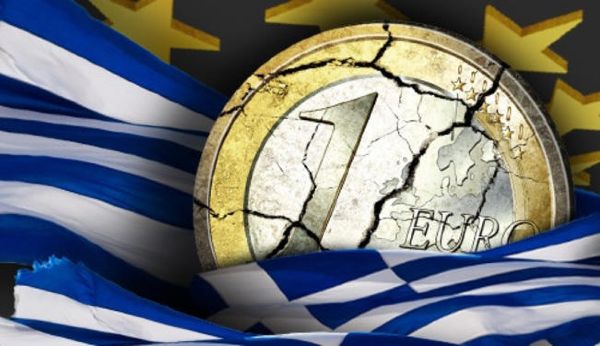Entanglement Between Euro Crisis, America Shows Interdependence

It's no secret that the world's largest economies have been experiencing less than optimal performance in the past few years. The increasing entanglement between the euro crisis and America only further demonstrates global economic interdependence.
"The economic situation in some parts of Europe is moving from bad to catastrophic," said The Center for Economics and Business Research chief executive Douglas McWilliams. The center added that it expects the eurozone to remain in recession throughout 2013, shrinking by 0.4 percentage points.
European stocks opened strong on Wednesday morning following the news of Obama's reelection, but analysts fear it will be short lived as US politicians work towards delaying the reinstatement of $600 billion in spending cuts and tax increases set to automatically go into effect January 1, 2013, providing that no bipartisan deal is reached.
International Monetary Fund Managing Director Christine Lagarde has stressed the importance of Washington pulling back from the fiscal cliff, indicating that Europe could be plunged into a very deep recession, or worse, if no agreement is met between US policymakers.
The United States' and Europe's economic well being is largely co-dependent. A recent study showed European investment amounted to 72 percent of total foreign direct investment in the US in 2010. The same study reported that affiliates of European-majority owned companies employed 3.5 million Americans in 2010.
European leaders are optimistic and mostly favored an Obama re-election over a Romney victory, largely due to the fact that Romney's foreign policy was seen as an ever-changing "enigma." European Union leaders released a congratulatory statement Wednesday morning stating:
“The United States is a key strategic partner of the European Union and we look forward to continuing the close cooperation established with President Obama over these last four years, to further strengthening our bilateral ties and to jointly addressing global challenges, including in the fields of security and economy."
These congratulations often came with an attached plea requesting for the removal of trans-Atlantic trade and investment barriers – something many feel would aid economic recovery. The trade agreement long sought by European leaders would “eliminate import and export tariffs, and unify regulatory approval for drugs and other products,” said the NY Times.
Ireland, Greece, Spain and Portugal have so far relied on bailout funding in one form or another from international partners and even the stronger European economies of Germany and France are experiencing a continued economic slow down. German Chancellor Angela Merkel recently said the crisis will take at least another five years to resolve.
Many lay the blame for the crisis at the feet of irresponsible lenders such as Germany and France, with others blaming irresponsible spending by countries such as Greece, along with the poorly planned euro currency itself. Leading up to the eurozone crisis in 2008, Germany, who has the largest European economy, played a key role by essentially lending countries more money than they could afford.
Yet, Germany has also contributed greatly to the euro's attempted re-stabilization, lending the most out of any country. A few highlights of recent German lending are their 22 billion euros in the first Greek bailout, 253 billion euros to the European Financial Stability Facility, and 94 billion euros to the European Central Bank purchase of sovereign bonds. Some estimate up to 30 percent of their GDP could become tied up in bailout efforts.
The newly approved European Financial Stabilization Mechanism – a fund created by the European Union to provide emergency assistance to other member states – receives the most funding from Germany, contributing at least 27 percent of the expected capital. The crisis could become much worse should Germany decide to not participate.
With these large financial commitments from Germany, one may wonder how much continued support they can afford to provide. Until recently, their economy remained well insulated from the effects of the eurocrisis, but with export rates and industrial orders falling along with the private sector contracting, it now seems the crisis may be sending Europe's strongest economy into a recession.
MoneyNews.com reports,"The European Commission cut its 2013 growth forecast for Germany to 0.8 percent from 1.7 percent and said the euro-area economy will expand just 0.1 percent after contracting 0.4 percent this year." With firms postponing investments, Germany is expected to experience "a noticeably weaker economic dynamic" over the winter months.
Largely an export-driven country, Germany's $3.4 trillion economy heavily relies on its automobile industry and exports to southern Europe, including struggling countries like Spain and Italy. Roughly 40 percent of German exports are to other European countries. Confidence in German business is now the lowest it's been in 2 1/2 years. UPI reports that the German Purchasing Managers' Index fell to 45.8 in October, the lowest reading since 2009, and down from 46.1 in September. The German finance ministry said factory order were down 3.3pc in September.




